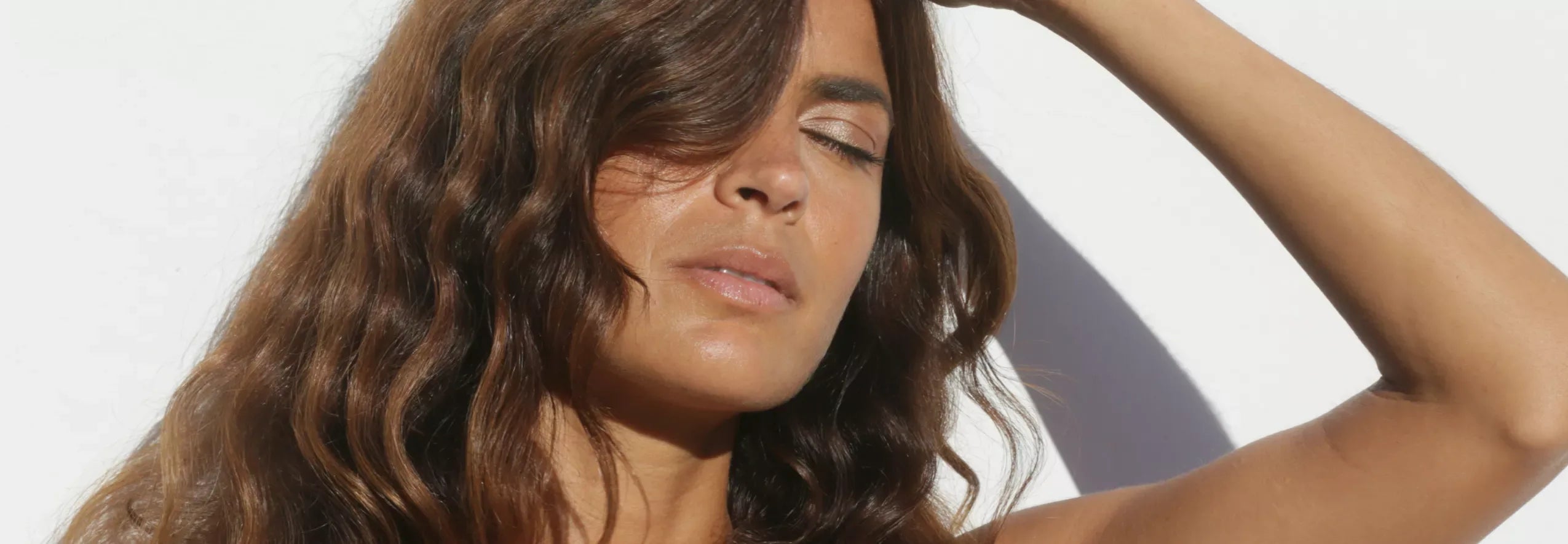It's what your health needs the most. Here are some surprising ways to get the rest you need.
Who wouldn’t describe themselves as busy? For most of us, life is full on and rest still falls firmly under the category of indulgence. But if we want to live better and increase our health and life spans, rest is something we need to take more seriously. It’s time to normalise rest.
What's our issue with rest?
We’ve committed to regular exercise, devoted our diets to nutrition and dabbled in self-care but even with all our modern day positive habit forming, rest is still a dirty word. “Self-worth is intertwined with productivity and that’s what makes us so resistant to rest,” explains author and chartered psychologist, Suzy Reading. “Rest has got a serious PR problem. It’s seen as lazy and luxurious and people feel like they've got to clear their to-do list before it's okay to top up their energy bank.”
Quite simply, we don’t rate rest. But there’s a weight of evidence to say we should. Hundreds of studies link power napping to heightened productivity and creativity. LYMA Ambassador Dr Michael Grandner, a Sleep Scientist and Associate Professor in the Department of Psychiatry at the University of Arizona, has considered the stats and advises us to include napping in our daily routines. “Data shows that under relatively well-rested conditions, a power nap can improve performance, reduce fatigue, improve learning and assist memory.”

Do we all need rest?
Rest is unilaterally a good idea for all humans, even those who sleep well during the night. Fast-paced lifestyles and high stress working environments demand intermittent breaks and the chance to reset our nervous systems, meaning there’s no one who couldn’t improve their health through rest.
Rest has been proven to have wide-reaching physical and mental health benefits like:
- reducing stress levels
- bringing down inflammation in the body
- strengthening the cardiovascular system
- reducing blood pressure
- improving cognitive function
- promoting a positive mindset
- improving mental focus
- dramatically lowering levels of clinical depression
Experts attribute rest with being an effective longevity tactic; helping us to ward off illness, live longer and stay healthier later into life. “If you want to heal from burnout, or if you want to protect yourself from burnout, then become skilled in the art of rest and truly commit to a daily rest habit. That's playing the long game. There’s healing to it and beyond that, when you're well rested, you are far more likely to be patient, resourceful and compassionate. Far from being pointless and unproductive, it's the stuff that allows us to be the kind of people that we aspire to be,” insists Reading.

How to rest
Rest can be a power nap but equally it need not be lying in stillness on your own, doing nothing. Rest doesn't have to be static, it can be active and social, as well as solitude and silence. It could be listening to a piece of music, working on a jigsaw puzzle, going for a walk with a friend, or simply sitting in the sunshine and imbibing life. “We need to broaden our toolkit of restorative practices and learn a different perspective on rest,” urges Reading.
“We all need gentle movement, we need face to face connection, we need time in nature. What rest is not, is sedentary screen time, nor is it just plugging yourself in and zoning out. Rest is understanding what kind of stimulation your body and mind have been exposed to and asking yourself what’s required to bring you back to feeling aligned.”
If you cannot get comfortable with daytime napping, consider forms of ‘active rest’ that don’t involve sleep or stillness. Tasks that feel generally productive but still provide a change of scenery and mindset. Reading suggests lying on the floor and swinging your legs up a wall, so they’re fully supported and staying there for five minutes. This redirects the flow of blood from your legs to your vital organs and replenishes your internal system with oxygen. There's no pressure to drop off and you still get all the benefits of rest.
If you work in an office or within a workforce, it can be tricky to fit rest in without drawing attention to yourself. For that, Reading proposes incorporating micro-rest into our days whereby the reset takes less than a minute, such as brow earthing. “Cross your hands flat on a table and rest your head on the backs of them for just 30 seconds. There's an acupressure point in the forehead and just like taking child’s pose in yoga, earthing the brow reboots the nervous system and allows you to re-enter the day with a sense of calm.”

How to optimise your rest
The many benefits of rest can be amplified by taking an evidence-based supplement containing brain and body boosting ingredients. Cognizin® 250mg in LYMA is the world’s leading nootropic, proven to increase neurological communication and memory recollection. In the same formulation, affron® is a stable mood enhancer and Sensoril Ashwagandha reduces anxiety and promotes restful sleep. These are gold-standard ingredients that will both support rest and increase its benefits.
3 books that excellently explain the importance of rest
Rest is not reserved for the weak or the sick; rest is smart, it’s health insurance and a protective manoeuvre to future-proof yourself. It’s never going to be easy to prioritise, but the multitude of health benefits make rest unequivocally worth the effort. Removing the guilt from rest allows you to commit the time to both mentally and physically rebooting and becoming a stronger, more resilient person as a result.
Laziness Does Not Exist by Devon Price, Ph.D.
Do Nothing: How to Break Away from Overworking, Overdoing, and Underliving by Celeste Headlee
Wintering: The Power of Rest and Retreat in Difficult Times by Katherine May



































